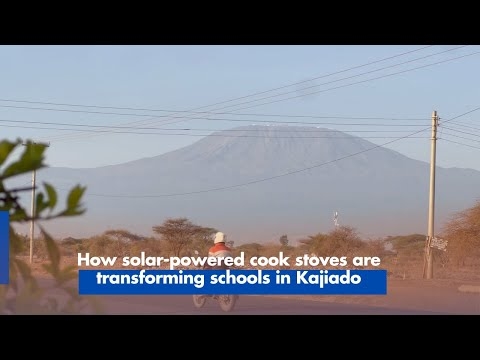Kenya's plan to command a multinational force in Haiti in 2023 generated international discussion.
Even though the mission eventually ran into legal problems, the original proposal showed promise for cooperation that might be very advantageous for both Kenyans and Haitians.
Kenya saw the deployment as an opportunity to highlight its expertise in both law enforcement and peacekeeping.
Not only would sending officers to Haiti help another country, but it would also give Kenyan police a chance to get crucial experience in a brand-new operational setting.
Collaborating with Haitian law enforcement authorities would provide them with exposure to diverse approaches and plans for countering criminal activity and upholding public order.
This cross-pollination of knowledge and skills can be invaluable upon their return to Kenya.
Trained officers with a broader understanding of urban policing in volatile environments can significantly contribute to domestic security efforts.
Additionally, participation in international peacekeeping missions often comes with training programs and access to cutting-edge equipment and resources.
This can have a lasting positive impact on Kenya's law enforcement capability.
The instability of Haiti may spread throughout the Caribbean and beyond. Trade and security in the region are threatened by gang violence and political turmoil.
Kenya would be strengthening the region's broader security framework by assisting Haiti in reestablishing law and order and creating a more stable atmosphere.
Kenya might therefore gain from this since it would improve the climate for business and investment prospects with Haiti and its neighbors.
Furthermore, less illicit activities like drug trafficking, which may be detrimental to Kenya and other African countries, may result from a more stable Caribbean.
The arrival of Kenyan police in Haiti would provide a glimmer of hope despite the unrest and instability afflicting the country.
The foreign peacekeepers' presence would indicate a coordinated effort to reestablish security and stability, giving Haitians hope and certainty for the future.
Additionally, the support and experience given by Kenyan police would help strengthen Haiti's security forces, giving them the resources and know-how needed to successfully handle domestic issues.
The deployment may have a long-term beneficial effect on both civilizations, which is one of its most important advantages.
Kenyan police can contribute to establishing the foundation for long-term peace and development by collaborating closely with Haitian authorities and communities.
Initiatives to increase capacity, educational courses, and teamwork to tackle the underlying causes of instability and conflict may all be part of this.
Through such efforts, Kenyan forces contribute to the creation of strong institutions and societies that can survive future crises, in addition to providing current security.
Moreover, the deployment of Kenyan forces to Haiti fosters a spirit of solidarity and cooperation between the two nations. Despite geographical and cultural differences, both Kenya and Haiti share a common desire for peace, stability, and prosperity.
By standing together in times of crisis, they forge bonds of friendship and mutual respect that transcend borders and endure beyond the duration of the mission.
International organizations frequently provide participating nations with cash incentives for peacekeeping operations.
The efforts of Kenya to grow its economy could be assisted by this money. Contracts on logistics, infrastructure development, and mission support services may also be advantageous to Kenyan companies.
This could boost Kenya's economy and lead to the creation of jobs. Moreover, increased stability in Haiti may make it a market for Kenyan products and services, creating new trade prospects for Kenyan companies.
The attitude of solidarity and togetherness among African nations known as pan-Africanism was echoed by Kenya's pledge to take the lead in the mission in Haiti.
Kenya would be setting a strong example if it actively assisted a fellow African country that was experiencing a crisis. This may improve relations between Kenya and other African countries and pave the way for more collaboration on security-related matters in the area.
Furthermore, if the mission in Haiti is a success, Kenya's standing as a responsible continent-wide leader may improve, possibly drawing in additional international collaboration and investment.
In the final analysis, there are numerous advantages for both Kenyans and Haitians from the deployment of Kenyan police to that country. The mission demonstrates the ability of international cooperation to address difficult issues, from raising Kenya's profile internationally to offering economic possibilities and promoting lasting peace.
Together with their Haitian counterparts, Kenyan police would set out on a mission to bring both countries closer to a more promising and safe future.
They remain unified in the face of hardship because they have a common goal of achieving peace, advancement, and prosperity.
Martin Moseti is a security expert and peace-building consultant












